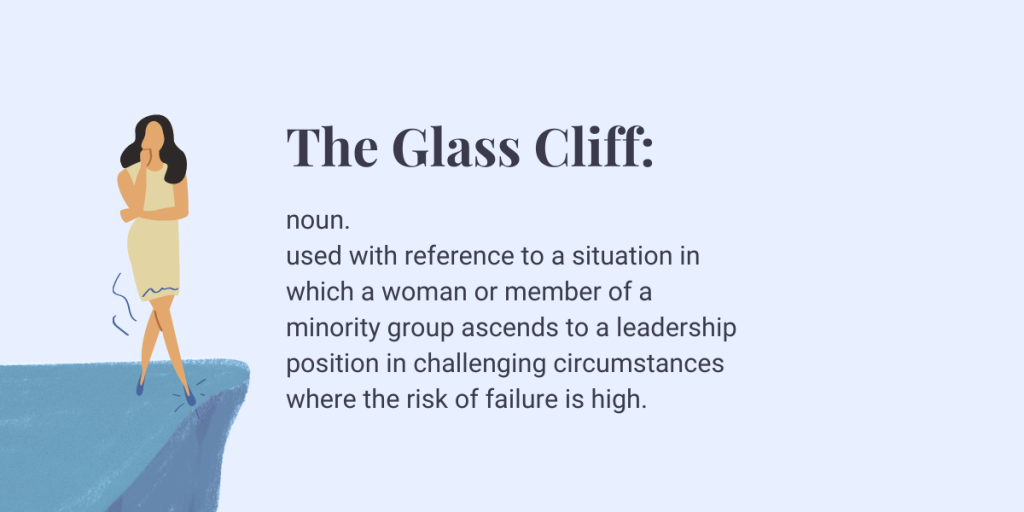
Share this article
In times of crisis, are companies more likely to appoint women and people of colour as leaders or does it come down to unconscious bias? And, whilst increased diversity within top level management is welcomed, does this put crisis leaders in a more precarious position?
Research shows that women and people from ethnic minorities are more likely to be chosen to lead a company when it’s in crisis mode. These leadership positions can be precarious as there is pressure to navigate out of the crisis, and the leaders can be left standing on the edge of a ‘glass cliff’ without adequate support.
Is the glass cliff real?
When looking at the evidence in this BBC article, it is confusing as some suggest the glass cliff is a very real thing, but others discount its existence. Have you first-hand experience of the glass cliff? Remember you’re not alone, we offer a range of support and solutions to help you lead through any crisis!

Does unconscious bias play a part?
Research on gender stereotypes has suggested that, in times of crisis, companies think that stereotypically ‘female’ traits are of paramount importance in a leader. But has this research confused gendered traits and actual gender of potential leaders?
Last year, Clara Kulich at the University of Geneva and Leire Gartzia at the University of Deusto, looked at gender and gender stereotypes separately. Their results showed women were preferred for any relational crisis, then any financial crisis and finally for a no-crisis situation. Therefore, women were preferred in a crisis even when stereotypical feminine traits were not thought desirable. But they did conclude that whilst stereotyping is one part of the story, it can’t fully explain leadership choices.
Whether or not you agree with the ‘glass cliff’, our own leadership programmes identify unconscious bias as a very real issue within leadership and recruitment decisions.
That is why we have our bias busting workshop which is designed to help leaders identify their own biases, adopt strategies to mitigate unconscious bias and learn from others experience.
Bias is a natural inclination of our minds, and neuroscience shows that up to 99% of our thoughts can be unconscious. This can lead to false assumptions about ourselves and others, and can have a negative impact on performance.
Mitigating biases that affect hiring decisions
Bias is known to be a primary cause of mismatch in the hiring process, slowing down innovation and productivity. But there is good news! Biases do not have to be reflected in our behaviour as they can be unlearned.
It is all about understanding the horn and halo effect.
Horns and Halos
A horns effect is one where a negative trait can cloud our overall perception of a person.
A halo effect is one where a positive trait can cloud our overall perception of a person.
Preventing unconscious bias is vital as it can lead to unfair and inaccurate judgements, and discrimination.
And whether a glass cliff is evident in certain companies, the most important thing is to work on recognising bias and making sure it doesn’t affect the hiring process.
We have recently put together a unique hybrid learning programme to help one of our clients successfully attract and select the best talent (while overcoming biases), please learn more about this if you’re interested by clicking the link below…